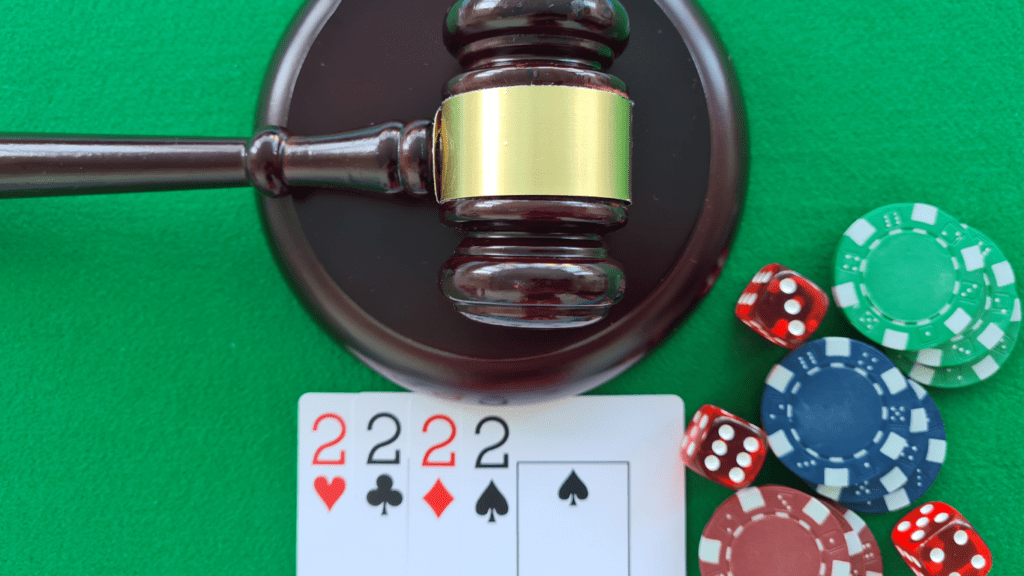Understanding Gambling Addiction
Gambling addiction, also known as compulsive gambling, is a mental health disorder characterized by an uncontrollable urge to gamble despite harmful consequences. It’s considered an impulse-control disorder. Individuals with gambling addiction often chase losses, hide their behavior, and face significant personal and professional issues due to their gambling activities.
Symptoms of Gambling Addiction
Identifying gambling addiction involves recognizing specific signs and patterns. Key symptoms include:
- Preoccupation with Gambling: Constantly planning and reliving past gambling experiences.
- Increased Tolerance: Needing to gamble with larger amounts of money to achieve excitement.
- Withdrawal Symptoms: Feeling restless or irritable when attempting to cut down or stop gambling.
- Chasing Losses: Continuously gambling to recover lost money.
- Lying: Deceiving family or therapists about the extent of gambling.
- Risking Relationships: Jeopardizing significant relationships, jobs, or educational opportunities due to gambling.
- Financial Problems: Relying on others for financial support after exhausting personal resources on gambling.
Causes of Gambling Addiction
Several factors contribute to the development of gambling addiction. These factors include:
- Biological: Genetic predispositions and altered brain function.
- Psychological: Underlying mental health conditions like depression or anxiety.
- Social: Peer pressure, societal norms, and exposure to gambling environments.
- Environmental: Accessibility to gambling venues or online platforms.
Impact on Mental Health
Gambling addiction severely impacts mental health. Individuals often experience feelings of guilt, shame, and failure, leading to:
- Depression: Persistent sadness and loss of interest in activities.
- Anxiety: Excessive worry and tension about gambling and associated problems.
- Stress: Physical and emotional strain due to gambling-related issues.
Treatment and Support
Effective treatment for gambling addiction involves a combination of approaches:
- Cognitive Behavioral Therapy (CBT): Helps individuals identify and change unhealthy gambling patterns and thoughts.
- Medication: Certain antidepressants or mood stabilizers can help manage symptoms.
- Support Groups: Gamblers Anonymous and similar groups provide peer support and shared experiences.
- Financial Counseling: Assists in regaining control over finances and developing a manageable budget.
Understanding gambling addiction is crucial to addressing this global challenge. Recognizing symptoms, understanding causes, and seeking effective treatments are key steps in helping individuals regain control over their lives.
The Global Prevalence of Gambling Addiction

Gambling addiction affects millions globally, with varying prevalence across regions. By analyzing regional statistics and socioeconomic impacts, we can grasp the scope of this pervasive issue.
Regional Statistics
Different regions report varying rates of gambling addiction. In North America, studies show approximately 2% of adults experience gambling problems. In Europe, rates are similar, with countries like the UK reporting about 0.7% of adults meeting gambling addiction criteria. Asian countries, including Singapore and Hong Kong, report higher rates, around 5%, due to the cultural acceptance of gambling activities.
| Region | Prevalence (%) |
|---|---|
| North America | 2.0 |
| Europe (UK) | 0.7 |
| Asia (Singapore/Hong Kong) | 5.0 |
Socioeconomic Impacts
Gambling addiction has widespread socioeconomic impacts. Financial strain leads to increased debt and bankruptcy rates. Job loss and reduced productivity contribute to economic burdens. Social costs include family disruptions, higher crime rates, and healthcare expenses. For instance, individuals with gambling addiction often face job instability, affecting their earning capacity and increasing dependence on social welfare programs. Additionally, increased healthcare costs arise from mental health issues related to gambling.
Causes and Risk Factors
Gambling addiction stems from various causes and risk factors, intertwining psychological, social, and economic aspects.
Psychological Factors
Psychological triggers significantly contribute to gambling addiction. Mood disorders, anxiety, and depression often lead individuals to seek temporary relief through gambling. People with impulsive personality traits or those who struggle with poor self-control are more prone to addictive behaviors. For some, gambling serves as an escape mechanism, offering a temporary reprieve from emotional distress or past trauma.
Social Influences
Social influences play a crucial role in gambling addiction. Individuals exposed to gambling at a young age, particularly through family members or peers, are more likely to develop gambling problems. The normalization of gambling in certain cultures or communities can increase risk, making it seem like a benign pastime rather than a potential hazard. Additionally, social pressures to conform or the desire for social acceptance can drive individuals to gamble more frequently or recklessly.
Economic Factors
Economic factors can exacerbate the risk of gambling addiction. Financial stress, including unemployment or low income, may lead individuals to view gambling as a quick fix for their monetary problems. The accessibility of online gambling platforms and the proliferation of betting shops in economically disadvantaged areas make gambling more tempting for those struggling financially. In some cases, the initial success or wins in gambling can create a false sense of financial gain, perpetuating the cycle of addiction.
Consequences of Gambling Addiction
Gambling addiction inflicts severe hardships on individuals, spanning mental, financial, and social domains.
Mental Health Effects
Gambling addiction leads to high levels of stress and anxiety. Persistent losses and financial pressure agitate the mental state, triggering depression in many cases. According to the National Council on Problem Gambling, around 20% of problem gamblers have attempted suicide. This rate illustrates the grave mental health risks associated with gambling addiction. Symptoms include pervasive sadness, irritability, and sleep disturbances.
Financial Implications
Financial ruin is a common consequence of gambling addiction. Individuals often accumulate significant debt due to continuous betting and losses. In the United States, problem gamblers owe an average of $38,000. Many resort to borrowing money from friends or family, exacerbating financial instability. This desperation can also lead to theft or other illegal activities to fund the addiction. The inability to cover basic necessities such as rent or utilities often results.
Social Consequences
Social repercussions of gambling addiction are equally severe. Strained relationships with family members and friends often emerge due to deceit and financial burdens. Marital discord is frequent, with some leading to divorce. Addiction also causes isolation, as individuals may withdraw to hide their behavior. Professional life suffers, with decreased productivity and potential job loss. The stigma surrounding gambling addiction further alienates affected individuals from their social circles.
Treatment and Prevention Strategies
Addressing gambling addiction effectively involves a combination of therapeutic treatments, policy interventions, and community support programs. These strategies target different aspects of the problem to provide comprehensive support for individuals affected by gambling addiction.
Therapy and Counseling
Therapy and counseling form the cornerstone of gambling addiction treatment. Cognitive Behavioral Therapy (CBT) helps patients recognize and change destructive gambling behaviors. Dialectical Behavior Therapy (DBT) focuses on emotional regulation and reducing harmful gambling impulses. Motivational Interviewing (MI) aims to enhance the individual’s motivation to quit gambling. Support groups like Gamblers Anonymous (GA) provide peer support through shared experiences and structured recovery steps.
Policy Interventions
Policy interventions play a critical role in minimizing gambling addiction risks. Governments enforce age restrictions to prevent underage gambling. Regulations mandate self-exclusion programs, allowing gamblers to voluntarily ban themselves from gaming venues. Advertising restrictions aim to reduce gambling promotion, especially to vulnerable groups. Implementing responsible gambling measures, like setting betting limits and providing access to help resources, helps create a safer gambling environment.
Community Support Programs
Community support programs offer localized help for those struggling with gambling addiction. Non-profit organizations run awareness campaigns to educate the public about gambling risks. Community centers provide counseling services, support group meetings, and prevention workshops. Schools incorporate gambling education into their curricula, teaching students about the dangers and encouraging healthy behaviors. By fostering a supportive community, individuals dealing with gambling addiction can access the help they need to recover.









